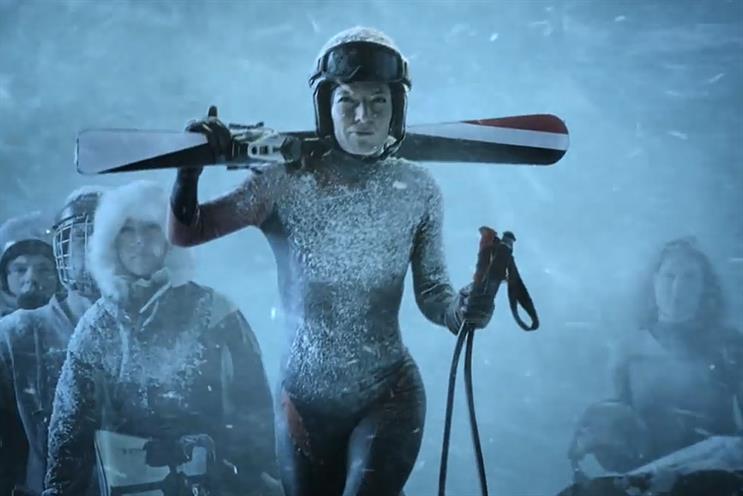
The contrast could scarcely be greater. Two years ago, the UK was in the grip of a fevered crescendo of brand activity leading up to the London 2012 Olympic Games, with official partners falling over themselves to draw attention to their investment and non-sponsors on the prowl for any opportunity to steal a piece of the limelight.
Fast-forward to 2014, and many people could be forgiven for not even knowing the Winter Olympics begins in the Russian city of Sochi on 7 February. Moreover, the most ubiquitous advertisers in 2012 – such as Coca-Cola, McDonald’s and Adidas – are the most conspicuous by their absence from the UK media.
The UK is not a winter-sports nation. In the US, the Winter games will be huge.
Take global sponsor McDonald’s. Although the fast-food chain has launched a social-media campaign offering sports fans the chance to send messages of encouragement to athletes (subsequently hijacked by protestors), a spokesman told Marketing there would be no "proactive push" in the UK. Meanwhile, Coca-Cola, again presenting partner of the Olympic Torch Relay, has barely mentioned its sponsorship of Sochi 2014 on these shores.
The picture is much the same with Team GB and ParalympicsGB’s backers. Adidas said tactical social-media activity promoting its official range of apparel "remains the focus", rather than the brand-led, celebrity-packed activity of 2012, while Nissan has welcomed Sochi 2014 with a TV ad starring cyclist Sir Chris Hoy, rather than one of Britain’s skiers or figure-skaters.
One reason for this muted approach is the relative lack of interest in winter sports in the UK. Despite some era-defining moments – Torville and Dean at Sarajevo 1984, Great Britain’s curling triumph at Salt Lake City in 2002 and even Eddie "The Eagle" Edwards at Calgary 1988 – sports fans here have always favoured the summer Games over their winter equivalent.
Even the BBC, broadcasting the event in the UK, has eschewed the usual montage-fest in its promotional trailer, instead depicting a sinister landscape, with Charles Dance providing the malevolent voice of nature, in an effort to position the Games as ideal entertainment for adrenaline junkies.
"We’re not seeing [sponsors] go hard in the UK because we’re not a winter-sports nation," says Tim Crow, chief executive of sponsorship agency Synergy. "In the US, which is the biggest and most important Olympic market, the Winter Games will be absolutely huge."
These Games have also been beset by controversy surrounding host country Russia’s law banning "homosexual propaganda", with some viewing US President Barack Obama’s non-attendance as a boycott. The threat of terrorist attacks has further impinged on any celebratory atmosphere.
The last Games to provoke such controversy was the Beijing Olympics in 2008, due to China’s human-rights record, which also led to a curious lack of activation from sponsors. Recalling the success of his client Coca-Cola, Crow argues that brands that did raise their heads above the parapet reaped the benefits specifically because "there were so few brands in the market".
Former British Olympic Association director of marketing Marzena Bogdanowicz, now running sports marketing consultancy b-focused, agrees that sponsors need not fret over public perceptions of Russia.
"All of those brands are backing the Olympic movement – that’s why they’ve got involved with the Olympics, not because of problems with the host city," she says.
Rampant positivity has certainly been at the heart of Procter & Gamble’s approach to its global sponsorship.
Bogdanowicz reveals that when the 2002 Salt Lake City Winter Games was tarnished by revelations of IOC corruption during the bidding process, the BOA urged brands to "step back" from those negative elements and instead ensure that their marketing contained "positive messages" about their backing of the British team.
Rampant positivity has certainly been at the heart of Procter & Gamble’s approach to its global sponsorship. Although its marketing chief, Marc Pritchard, has set modest targets for the sponsorship – predicting the Games will produce only a third of the uplift in sales posted after London 2012 – the FMCG company has again captured attention with its latest "Thank you, Mum" TV ad.
The emotional film, called "Pick them back up", shows mothers helping their children through training in winter sports such as ice skating and skiing, before cutting to the moment of triumph as their kids succeed at a Winter Olympics. To add a UK-specific dimension, P&G has recruited British world champion skeleton bobsledder Shelley Rudman as local ambassador for the campaign By using the universality of a message about supportive mothers, and thereby also targeting the often-ignored female audience tuning in to the Olympics, P&G has jumped to the front of the pack. The ad has already been viewed nearly 12m times on YouTube.
"Some brands will probably be left thinking ‘Well, we should’ve done something’," argues Bogdanowicz. The gold medal awaits someone; the trouble is, too few sponsors appear committed enough to try to win it.

